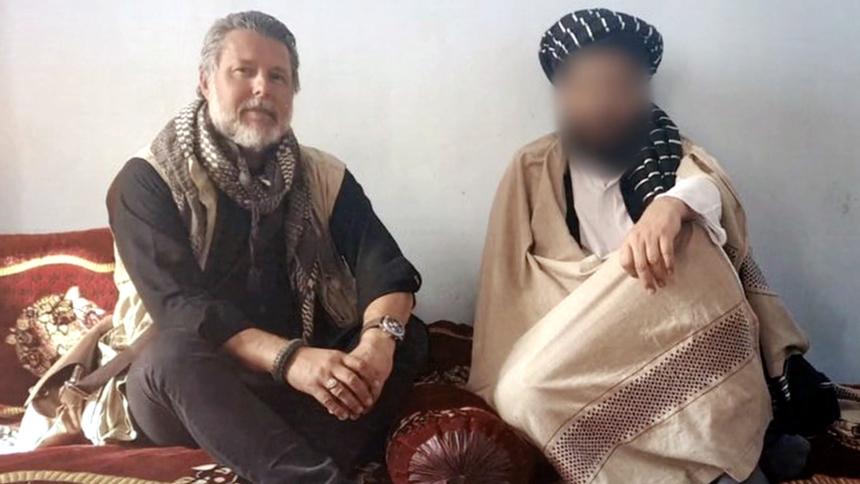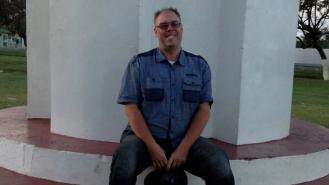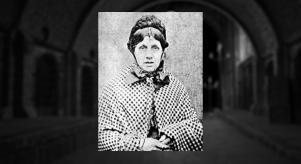
Abducted by the Taliban: The survival story of Ian Purchase
In Missing Presumed Dead, we hear the stories of real people’s disappearances – how they survived and how they were rescued – from their own points of view. The new series airs Tuesdays at 9pm on Crime+Investigation.
Ian Purchase experienced a living nightmare few could imagine. In May 2023, while working as an aid worker in Afghanistan, he was abducted by the Taliban. His story is harrowing, yet a remarkable tale of human strength and perseverance in the face of extreme adversity.
Life before the abduction
Ian, a father of two, had a well-respected job serving within the 3rd Battalion, Parachute Regiment from 1995 to 2001. He went on to act as an aid worker in Afghanistan.
He had been working in Afghanistan for a while, having entered the country on a train from Uzbekistan in September 2021. Once there, Ian helped deliver aid to orphans and widows, establishing various contacts as he did so.
Ian’s abduction
Prior to arriving in Afghanistan, Ian received a phone call from a friend warning him against entering the country. However, this inadvertently encouraged him even more. His goal was to establish a relationship with the Taliban, something that few people had tried to do before, with the intention of helping civilians in need.
While trying to negotiate a deal with one of the Taliban’s supreme leaders, Ian was called in for questioning and taken to the Ministry of Interior Affairs. He initially thought it would be a routine visit, but he was soon led into a small 14-foot by 18-foot cell, where he was held hostage for the next five months.
Five months of confinement
For the first five days, he was whipped and beaten. After that, he was mostly left all by himself.
The cell had very small windows in the back, and he was fed twice a day, although the guards that brought him food didn’t speak his language. Occasionally, guards would provide old history books for Ian to read. He read with ease, as the lights were kept on all day and every day.
Ian was also only allowed showers occasionally, and he would have to beg the guards to do so. He didn’t have a shower for the first month of his confinement, nor did he have a fresh change of clothes.
To keep himself sane and avoid negative thoughts, Ian walked as far as 12 miles daily in his cell. In an interview, he stated that he walked as many as 28,000 steps a day and ‘never went below 15,000’.
Mental and physical anguish
As well as the physical strain, Ian also had to deal with the mental pain of his experience. He didn't know what would become of him from one day to the next, or whether he would ever see his family again. He wrote the names of his children, ex-wife, and mother on the wall and would touch their names daily, praying that he would see them again.
His captors eventually allowed him to call his mother, but the sudden decision of letting him do so meant that Ian didn’t have much to say. All he did was repeat how much he loved her and his kids.
An end to the prison sentence
On 7th October, Ian was told by the commander of the Taliban that he and the other three UK prisoners they had would be released on 10th October. On the day, Ian, Kevin Cornwell, Miles Routledge, and one other unnamed British captive were moved into the same cell.
Everything was still up in the air, as they had no communication and no phones. They didn’t even have their passports. However, after an agonising wait, the captives were put on a plane bound for the UK. They were finally home after their harrowing ordeal.
The aftermath
Ian’s prison sentence might be over, but his time under Taliban control still affects him today. As well as his mental health struggles, Ian deals with a painful hip due to the time he spent walking in his cell. He also has none of his money or belongings as they were left in Afghanistan.
Despite everything, Ian still believes that Afghanistan is a beautiful place and he has no ill feelings towards the country and its inhabitants. Ian’s continuing positivity is undeniably an admirable trait, particularly considering the incredibly traumatic nature of his capture.








